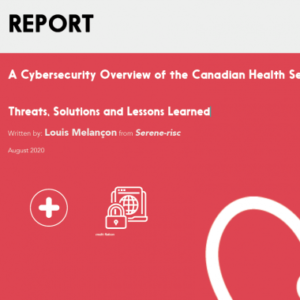Presented by Ryan Kennedy as a part of the 2020 Serene-risc Workshop on The State of Canadian Cybersecurity Conference: Human-Centric Cybersecurity
About the presentation
Advances in data collection abilities, the rapid diffusion of smartphones, and recent large scale data breaches are causing consumers’ location privacy awareness and concerns to rise. Privacy related literature contains several models used to understand privacy behaviours and privacy concerns such as the Privacy Calculus. The Privacy Calculus involves a rational decision making process whereby an individual engages in a cost-benefit analysis, of competing beliefs, to decide whether to disclose their personal information. The current research extends the original Privacy Calculus inward to explore the possibility of an Internal Calculus on location privacy concerns. The Internal Calculus reflects a new cost-benefit of competing beliefs, within the existing calculus, on smartphone location privacy concerns rather than information disclosure. Six categories, composed of 14 competing factors, are considered for the internal calculus on privacy concerns; Benefits, Risks, External Influence, Internal Influence, External Protection, and Internal Protection. A novel theoretical model of an Internal Calculus on location privacy concerns is produced. It extends the original Privacy Calculus inward for a more thorough and granular understanding of individuals’ conceptualization of location privacy concerns and therefore, their intentions to disclose personal information. The model comes at a critical time, as organizations need to balance their need for customer information with rapidly increasing privacy concerns. The findings of this research have significant practical implications for several audiences including organizations collecting personal information, smartphone developers, smartphone service providers, and government regulators.
About the speaker
Ryan William Kennedy is a Research Assistant with The Cybersecurity Research Lab, at Ryerson University. Ryan holds a Master of Science in Management (MScM) from Ryerson University and his previous education was a Bachelor of Commerce (B. Comm) in Business Technology Management (BTM). His research interests include the security of emerging technology (quantum computing, blockchain, IoT, open banking), management of emerging technology, information security, technology management, and technology adoption. Ryan’s current research areas include; IoT privacy and security, mobile application privacy and security, and quantum computing risk and cost implications.



